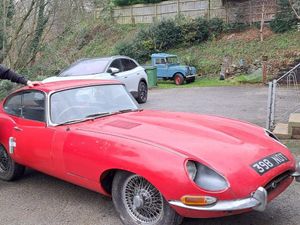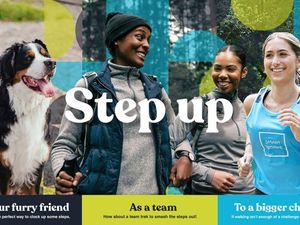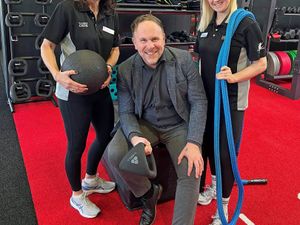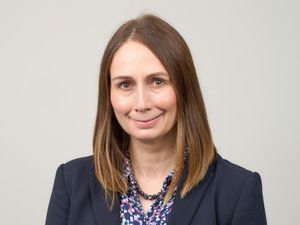Sandwell woman raises awareness of breast cancer
Ameena Westwood, 53, was first diagnosed with breast cancer in 2017, but earlier this year received the devastating news that the cancer had returned. She now wants everyone to know how to spot the signs and symptoms of breast cancer and get help early.
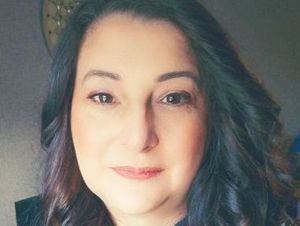
Breast cancer is one of the most common types of cancer in the UK. The main signs and symptoms of breast cancer in women often include:•a lump or swelling in your breast, chest or armpit•a change in the skin of your breast, such as dimpling, or redness (which may be harder to see on black or brown skin), a change in size or shape of one or both breasts, nipple discharge (if you’re not pregnant or breastfeeding) which may have blood in it, a change in the shape or look of your nipple, such as turning inwards or a rash on it, pain in your breast or armpit which does not go away.
Ameena, who lives in Smethwick, first noticed a lump in her breast in 2017, just a year after her mom was diagnosed with lobular breast cancer, the second most common type of breast cancer. Ameena said: “I had just started a new job as Community Development Manager at the Yemeni Community Association (YCA) in Sandwell and I remember feeling really excited about the future. I was watching TV one evening and randomly felt a lump in my breast. I was really surprised as I hadn’t noticed it before, but it really stuck out. As my mom had been diagnosed with breast cancer less than 12 months before, I was aware of the signs and symptoms, but I thought perhaps it was just down to my hormones and it might go away on its own.
“It really played on my mind, and I spoke to my brother Ragih about it, and he told me to call my GP and just get it checked out. I booked a GP appointment, and when the doctor examined me, she didn’t even need to ask me to lie down or lift my arm up as the lump was visible by just looking at my chest. I was referred to City Hospital for further tests and within 10 days had my appointment at the breast clinic.
“I’ve always had lots of lumps in my boobs, and have had several cysts before, so felt blasé about the appointment as I assumed it would be the same type of thing. At the clinic, I had a mammogram and ultrasound, and the doctor confirmed I did have a cyst, however there was something behind it that they didn’t like the look of. I had the cyst drained and they took biopsies of the suspicious lump. The results of my biopsy came back, and it was confirmed I had lobular breast cancer, the same as my mom, which was a huge shock.
”Despite undergoing a mastectomy and radiotherapy, Ameena returned to work within a month, determined not to let her community down. It was also while attending her own cancer appointments with her mom, she realised the importance of the conversations that took place in waiting rooms between patients and their families and, with the support of Macmillan, set up the YCA Let’s Talk Hope Cancer support group for people in Sandwell.
Ameena continued: “After my cancer treatment I was given the all-clear and I threw myself into work and the cancer support group. But in 2018, we received the terrible news that my father had been diagnosed with stomach cancer and he sadly passed away a year later in 2019. He had actually taken part in a genomic trial before he died, and in 2022 we were contacted by the trial to confirm that he was a carrier of the BRCA2 gene. Out of his six kids, four of us have tested positive for the gene which means a heightened risk of cancer. My two sisters, who are twins, have both been through breast cancer and my daughter has also recently had a preventative mastectomy after testing positive for the BRCA2 gene.
“In December last year I started getting a really bad cough and shortness of breath when I walked up the stairs. Unfortunately, in March I had the heartbreaking news that my cancer had returned, and I was diagnosed with stage 4 metastatic breast cancer. The cancer has now spread to my spine, pelvis, ribs and sternum. I’m currently having targeted cancer treatment every day in the form of tablets, and I see my oncologist at the hospital once a month.
“I’m half Yemeni, and because of my own personal journey with cancer and my role with the YCA, I do a lot of work within the community to raise awareness of cancer, which is a topic that isn’t often spoken about. I think it’s really important that people advocate for themselves – you know your own body and you know if something doesn’t feel right, so you must seek help if you’re worried. That’s why it’s important that to know the signs and symptoms of breast cancer, check your breasts regularly and make sure you go to your screening appointments when you receive an invite.
“I’ve always said, I’m not particularly religious, but god picked me for this journey because he knows I’m going to shout it from the rooftops and raise as much awareness as I can.”
The NHS Breast Screening Programme invites all women from the age of 50 to 70 registered with a GP for screening every 3 years. You'll automatically get your first invite for breast screening between the ages of 50 and 53. Then you'll be invited every 3 years until you turn 71.
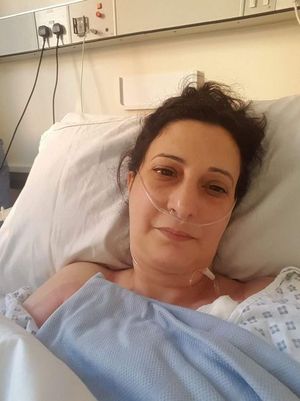
Dr Mona Sidhu, Medical Director of Primary Care for the NHS Black Country Integrated Care Board (ICB), said: “It’s really important to get to know how your breasts look and feel, and what’s normal for you.
“If you notice any unusual change in your breasts, please book an appointment to see your GP as soon as possible. The chances are that it won’t be cancer, but if it is, then catching it early means it will be more treatable.
“I’d also encourage eligible women to attend their breast screening appointments when invited. Screening can help detect cancer before you can feel or see any changes in your breast yourself, and early diagnosis can make all the difference.”
For more information about breast cancer, visit the NHS website.
For more information about breast cancer screening in the Black Country, visit the NHS Black Country ICB website.
To find out more about the Let’s Talk Hope Cancer support group, visit the YCA website.
By Sasha Shackell-York - Contributor

